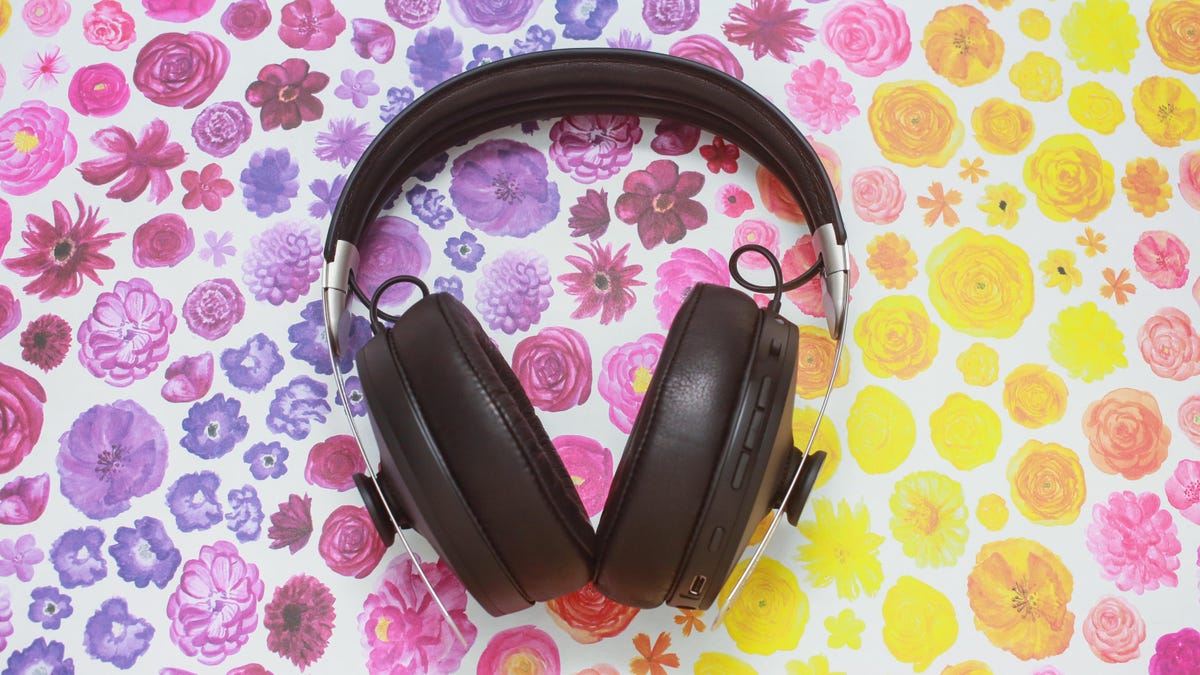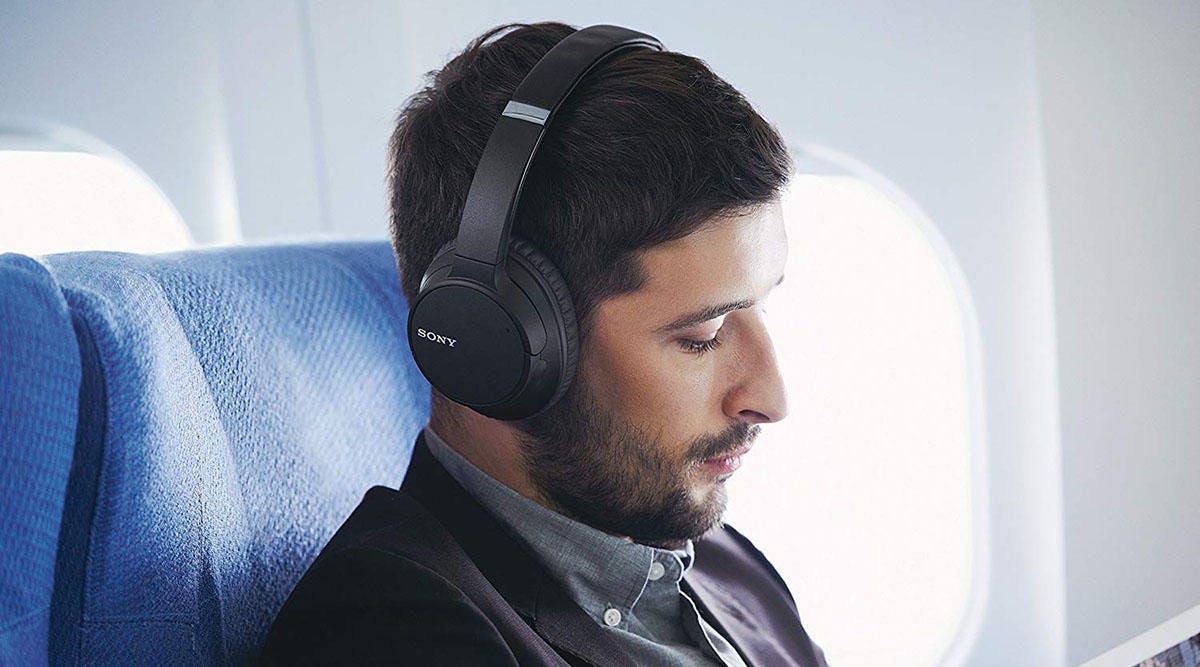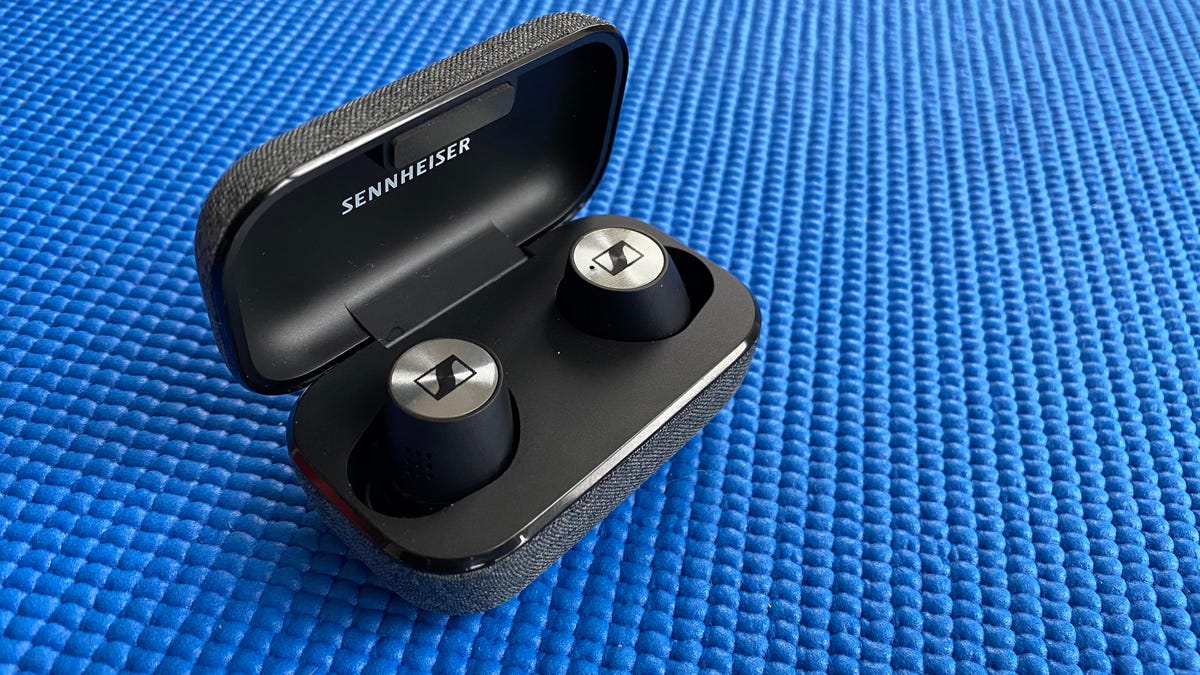Does Differntcell Phones Give Better Sound Quality When Bluetoohed To Speakers
If you're the type of person who loves to scrutinize speaker and headphone feature lists, you've likely meet aptX hyped as an comeback in quality for the audio transmission between your source, like a phone or tablet, and your headphones or speakers. In the early days of Bluetooth, aptX got a lot of attention due to its potential for far college quality compared to the stock Bluetooth manual.
Bluetooth technology has come a long way in the last decade or so -- it's currently in its version 5 iteration -- and as such, aptX isn't the panacea it in one case seemed. That doesn't mean it's not potentially useful, just that it doesn't necessarily mean there'due south much, if any, audible comeback. It tin can have other benefits, though, so it'southward definitely worth learning about.
Simply before we can explain aptX, we need to talk about Bluetooth itself.
Read more:The best headphones of 2020
Bluetooth audio: A quick primer
Digital audio is a drove of samples of what a sound wave looks similar at a specific moment in fourth dimension. Instead of a steady wave of sound, it's a series of snapshots.
With enough of these snapshots, or "samples," a playback device (an iPhone, say) can catechumen them back into a smooth sound wave. Take good old-fashioned CD. The audio on a CD has 44,100 samples every second, and each sample has a value of somewhere between 0 and 65,535 (too called "16-bit"). And then in other words, in that location are 44,100 snapshots per 2nd, and each snapshot has 1 of 65,536 potential values.
That 16-bit/44kHz rate of CD equates to near 10 megabytes per minute for stereo, or over a megabit per 2nd. While that isn't a lot of data these days, information technology's yet a lot more than than what's easily transmittable between a portable device and Bluetooth headphones. It'd besides chew through your mobile data if you were to stream it.
Hence the ubiquity of compressed audio, like AAC and MP3. These "codecs," a portmanteau of compression/decompression, remove what you theoretically tin can't hear using a method chosen "psychoacoustic modeling." This lets them reduce the size of the audio files or streams significantly. MP3s, for case, are often around 1MB per minute. That's a 10x decrease, with a corresponding decrease in file size.

The Sennheiser Momentum 3 Wireless is another aptX-compatible loftier-end headphone.
Sarah Tew/CNETThe trade-off for convenience is quality. These codecs are called "lossy," as the sound removed is lost, and can't be recovered. Compressed audio, in theory, sounds worse than the uncompressed version of the same song. This isn't as noticeable now as it was in the early days of the format, thanks to amend encoders, higher fleck rates and more, but sometimes you can even so tell the difference fifty-fifty on the cheapest headphones.
Which brings u.s. back to Bluetooth. Bluetooth is a low-power wireless manual designed to allow two devices to hands transfer data over short range. It'south shorter range, lower ability and transfers less information than Wi-Fi. As the Bluetooth standard has advanced so has the size of its limited wireless "pipage." Which is to say, far more than information can be transmitted over Bluetooth than when information technology start came out.
In the early on days of Bluetooth, sound had to be compressed significantly to piece of work at all. This was done using a codec called SBC or "depression complexity subband codec." It wasn't designed with perfect audio allegiance in listen. Information technology was designed to use as piddling processing power as possible, given the lower power devices for which it was intended. It has gotten better over the years, and on most devices runs at a scrap rate of upwardly to 345 kilobits per 2d. For reference, if y'all pay for a Spotify Premium business relationship, you can go upwards to 320 Kbps, only more on that in a moment. This isn't to say that whatsoever 2 codecs at the aforementioned flake rate will sound the same, but it gives usa something unproblematic to compare.
In that location's no guarantee SBC will run at 345 Kbps, notwithstanding. Information technology's possible a device will use a lower bit rate, which ways that's the max you'll get, regardless of the capabilities of what you pair it with. At its best, SBC isn't radically different in audio quality to MP3 or AAC. It'south not necessarily always at its best, though.
It was into this lossy compression miasma that aptX was born.
Enter aptX
aptX is still pinch; it's just a different kind of pinch. Where MP3 uses psychoacoustic modeling to take out data, aptX uses "time domain ADPCM," which is a whole rabbit hole of fun research for whatever of the technically inclined readers out there. The oversimplified version is that ADPCM uses fewer $.25 per sample, so the files are smaller.
Qualcomm, the company that currently owns the aptX patents, makes big claims about its engineering. "aptX sound is a bit rate efficient engineering that ensures y'all receive loftier quality sound from your Bluetooth device, so you have a improve listening feel."
The trick is, both products -- the phone and the headphones, for example -- must have aptX to get any do good. If only one has it, you don't get aptX.
The initial version of aptX is still around, and fairly common. The biggest improvement over SBC is that information technology requires a bit rate of 384 Kbps. In that location won't be much, if any, audible difference between aptX at 384 and SBC at 345. If 1 or more of your devices doesn't run SBC at its best scrap rate, but does offering aptX, then you might hear an improvement.
aptX HD goes a step farther, offering 24-bit audio at a bit rate of up to 576 kbps, while the new aptX Adaptive theoretically offers the sound quality of aptX HD at a lower fleck rate and has the option of a 96kHz sampling rate.
Hither's a list of products that have aptX. Of note, in that location are no Apple products on the list. But plenty of Samsung, LG, Google and other phones have it, as well as numerous speakers and headphones. The list doesn't seem to be updated regularly, and so if you lot don't see your current device or one yous're considering, it's worth checking the specs folio of the respective manufacturer.
Is aptX worth it at present?
In a word: possibly. SBC isn't the quality-cracking upshot it was in the early on days of Bluetooth. Done correctly, it'due south on par with other lossy codecs. aptX volition, potentially, requite yous a amend guarantee that the transmission isn't the weakest link in your audio concatenation, only there'due south a lot more to information technology than finding the aptX logo and bold the device volition give you great audio. Some devices, for case, will play the codec from the source directly. So if y'all've got AAC files on your phone, and your headphones support information technology -- and yes, about Apple hardware does -- you'll listen to that without a conversion to SBC, and so aptX isn't necessary.

The Sony WH-CH700N noise-canceling headphones as well take aptX Hard disk drive.
SonyAlso, and perhaps more chiefly, consider what you're listening to. On paper, aptX HD seems great, with a high sample and bit rate. Unless you accept a loftier-quality source, nevertheless, this additional adequacy isn't important. A better transmission won't make your audio sound better unless it had been constricted past a lesser transmission blazon. To put it another style, if yous're listening to a depression-quality audio stream, on inexpensive headphones, changing to aptX HD isn't going to magically give you meliorate audio. As mentioned in a higher place, even SBC can have a higher chip rate than Spotify Premium, most other music streaming services or about commercially available MP3s. The free version of Spotify is half that bit charge per unit, and on mobile information technology'south fifty-fifty less. So at that place's no point in aptX HD if your content isn't going to take advantage of it. The stock SBC that comes with all Bluetooth devices might exist fine. Again, comparing bit rates isn't the whole story, but the divergence isn't likely to be dramatic.
Now, if yous're downloading high-resolution, uncompressed audio, the story is a bit different. This isn't something most people do, however, and tin only exist done on specialized services and sites. The step-up HiFi choice on Tidal, for instance, offers "lossless, CD and Principal Quality Authenticated quality (one,411 kbps versus 320 kbps for standard streaming)." There'south also the step-up, additional-costAmazon Music Hard disk drive and others. Unless y'all've knowingly sought out high-res audio, it's highly unlikely your music is high-res plenty to require annihilation other than a standard Bluetooth connection.
There are also other players in the game. Sony, for instance, has its own take on high-quality Bluetooth audio, called LDAC. It's non available in as many devices, though.

The Sennheiser Momentum Truthful Wireless 2 earbuds as well pack aptX.
David Carnoy/CNETIt'due south important to continue in heed that the manual codec is simply i part of how the music sounds, and honestly, non a big part. The quality of the speakers and where they are in your room, the quality of the headphones and how well they fit, the quality of the source cloth -- they all take a much bigger effect on the overall sound quality than how it'due south transmitted from your phone to your speakers or headphones. That can be a weak link, but it is but a link.
That is perhaps a controversial statement, since aptX is discussed and praised extensively in audiophile circles. And so instead of taking my word for it, exam it for yourself. Long-time sound reviewer Brent Butterworth created a Bluetooth Bullheaded Exam so you tin can download files with different codecs to find out if you tin hear a deviation. Make sure you lot use wired speakers or headphones; don't add together an boosted level of Bluetooth to the test.
The future of aptX and Bluetooth
There are some new versions of aptX starting to show upward in products that accept the potential to be far more interesting. I discussed Adaptive above, which expands in the audio quality direction. What I'k interested in is aptX Low Latency.
You may take noticed when using Bluetooth headphones a lip-sync error, where the voices don't lucifer up with rima oris movement. This is caused by the additional processing required to go the audio to your ears via Bluetooth. Low Latency reduces the fourth dimension from SBC's 200-300 milliseconds to around twoscore ms. This should effectively eliminate lip-sync issues. The aptX Adaptive codec will have a similarly low latency equally well, of around 80 ms.
What'south as well on the horizon is an update to Bluetooth'south sound, in the form of the Low Complexity Communication Codec, or LC3. This codec should, in theory, allow for lower fleck rates that maintain audio quality. It was announced at CES 2020, and then don't expect it in products just nevertheless.
The concluding word (for now)
Can aptX offer better sound quality? Aye, meliorate pinch is ordinarily a proficient thing -- only information technology'southward non a guarantee of practiced sound quality. Information technology's one link in a concatenation, and on about devices, the current link (SBC) works perfectly well. If yous listen to all your music on YouTube and you're happy with your gratis Spotify account, the higher quality potential with aptX isn't likely to be audible. If you're trying to eke out the most performance possible on some loftier-end gear you already own, and yous seek out new audiophile tracks and new download solutions, aptX and especially aptX Hard disk and Adaptive might give you lot a slight crash-land over SBC. But if you're that much of a stickler for sound quality, I'm guessing that you're listening to everything wired anyhow.
For the well-nigh role, though, it'southward far more than important to merely go adept sounding gear.
As well every bit covering TV and other display tech, Geoff does photo tours of cool museums and locations around the earth, includingnuclear submarines, massive aircraft carriers, medieval castles, plane graveyards and more than.
You can follow his exploits on Instagram and Twitter, and on his travel blog, BaldNomad. He likewise wrote a bestselling sci-fi novel virtually city-sized submarines, along with a sequel.
Does Differntcell Phones Give Better Sound Quality When Bluetoohed To Speakers,
Source: https://www.cnet.com/tech/mobile/aptx-everything-you-need-to-know-about-the-wireless-bluetooth-enhancement/
Posted by: jacksonhineseepthis1955.blogspot.com


0 Response to "Does Differntcell Phones Give Better Sound Quality When Bluetoohed To Speakers"
Post a Comment